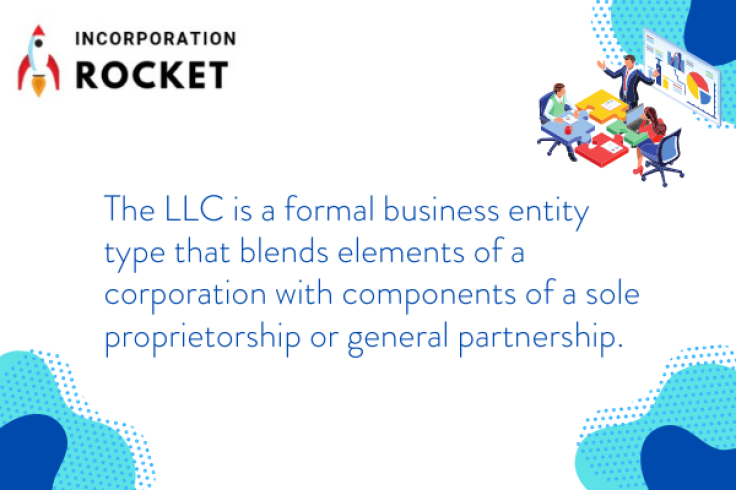U.S. Records 5.1% Growth in LLC Registrations: Startup Guide

For the month of July 2021, the Northeast has recorded 66,518 business applications, according to the United States Census Bureau.
The West recorded 96,852 business applications for the month of July, indicating a growth of 5.1%.
A study by the University of St. Gallen (Switzerland) and Harvard Law School points out that the formation fees may explain the popularity of the LLC best.
The limited liability company (LLC) is a vastly more popular business entity in some states with Wyoming, Nevada and Delaware being touted as the “best states” to form an LLC. The truth is that for most entrepreneurs the best state to form an LLC is the one in which they reside. As with any rule there are exceptions, but choosing to create an LLC outside of one’s home state has the potential of backfiring if one fundamental principle is neglected: taxes.
The majority of states that collect income tax have a “physical presence” rule. This rule, simply stated, boils down to this: regardless of where the LLC is formed, if one’s home state has an income tax, one will be required to pay it on the profit of the company. Fortunately, there are services available that make navigating the red tape of LLC registration much easier.
The LLC: A Closer Look
The LLC presents a unique advantage, allowing one to take advantage of both the corporation and partnership business structures. The business structure protects members from personal liability in most instances, helping to keep personal assets safe in case the LLC faces bankruptcy or lawsuits. The Small Business Administration notes that members of the LLC are considered to be self-employed and must pay self-employment tax contributions toward Medicare and Social Security.

Steps to LLC Formation
LLCs can be a good choice for medium- or higher-risk businesses. This business structure also offers owners with significant personal assets some form of protection while benefiting from a lower tax rate than they would have had with a corporation. In terms of formal business entities the LLC is one of the easiest to form. Typically the process of forming an LLC includes:
Choosing a name for the LLC
When selecting a name for the LLC it is important to note that certain restrictions apply. Many states restrict companies from using certain words in their names, such as “bank”. In addition to restricted words company names should be unique and not similar to existing company names.
Reserving the business name (this is an optional step)
Potential business owners may choose to reserve their selected business name. This can be done by filing the appropriate form and paying a reservation fee. The length of the reservation period, filing fees and renewal policies may vary between states.
Appointing a Registered Agent
The majority of states require LLCs to name a registered agent, sometimes referred to as a statutory agent. The registered agent receives official documents, lawsuits and subpoenas on behalf of the LLC and ensures that the appropriate person receives the documentation.
Prepare an LLC Operating Agreement
The LLC operating agreement can be considered a roadmap that describes how the LLC will be run. It specifies ownership interests and voting rights of members, the allocation of profits and losses, how the business will be governed, rights of the members and the way the company will be dissolved if need be. Typically the operating agreement is not filed with the state and may not be required by state law. However, the operating agreement delineates how business owners define their rights and responsibilities, helping to minimise future disagreements.
File appropriate paperwork with the state
Each state has slight variations on the form and procedure for establishing an LLC. Generally, one must file articles of organization. This document contains information pertaining to the name and address of the LLC, length of its existence, name and address of the registered agent and the purpose for which the LLC was formed. The paperwork usually has to be signed by the person forming the LLC, but in some states the signature of the registered agent is also required. All states charge a filing fee, but the cost varies from state to state.
Obtain a certificate from the state
After LLC formation documents have been filed and approved the state will issue a certificate that confirms the LLC’s formal existence. Once this certificate has been issued and received one can obtain a tax ID number and business license, as well as setting up a business bank account.
Register to do business in other states (optional)
This option may become nessissay if the LLC does business in more than one state. To do this one will need to file the appropriate forms as well as appoint a registered agent in each state where the LLC will be authorized to do business.
Additional Consideration: Determining the Fiscal Year
Like any other business, it is important to maintain consistent records of the LLC’s yearly revenues and expenses in an annual accounting period. The IRS recognizes two main types of tax years (calendar tax year and fiscal tax year). The business structure and cycle will help to determine whether a calendar or fiscal year is suitable. A fiscal tax year is 12 consecutive months ending on the final day of any month other than December. A fiscal year may also be a 52- to 53-week tax year that does not end on the last day of a given month. Should the fiscal year be under 52 to 53 weeks, the tax year will always conclude on the same day of the week when it last occurred in that calendar month (i.e. the last Friday of every June).
© Copyright IBTimes 2024. All rights reserved.











